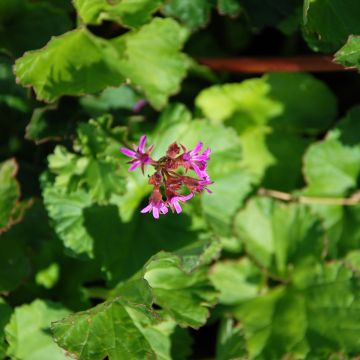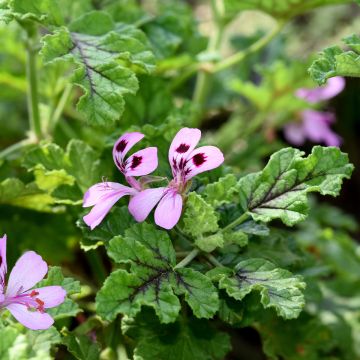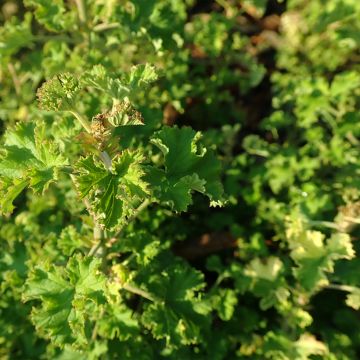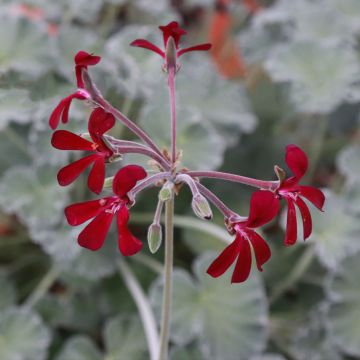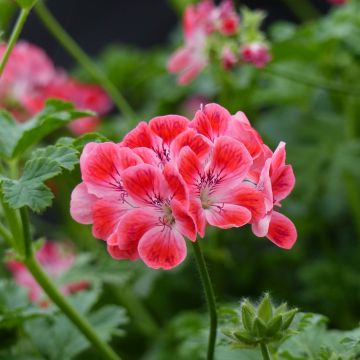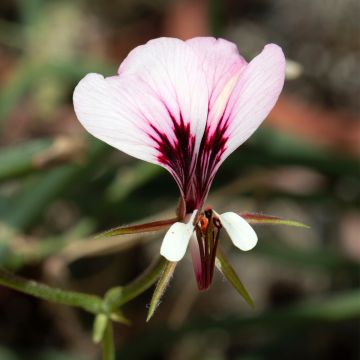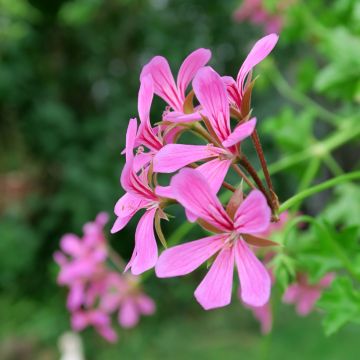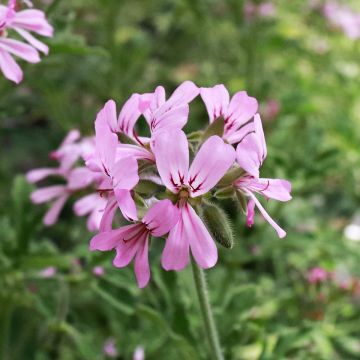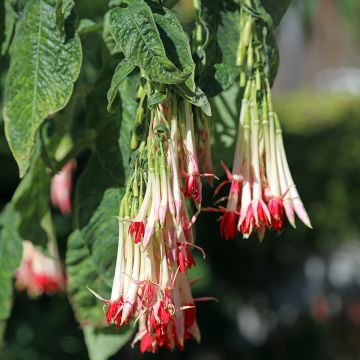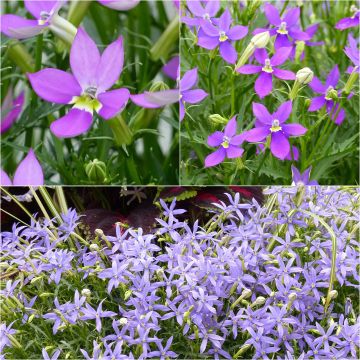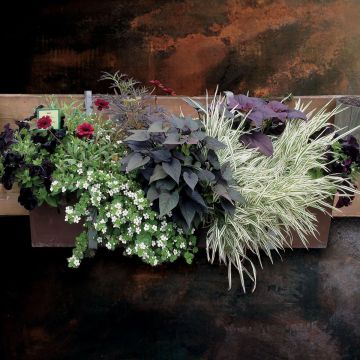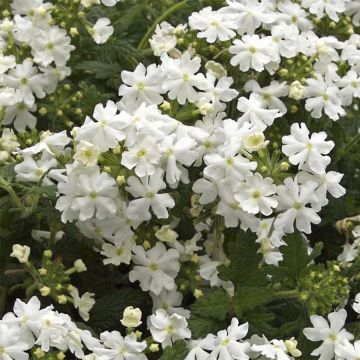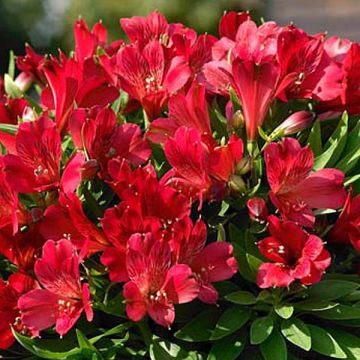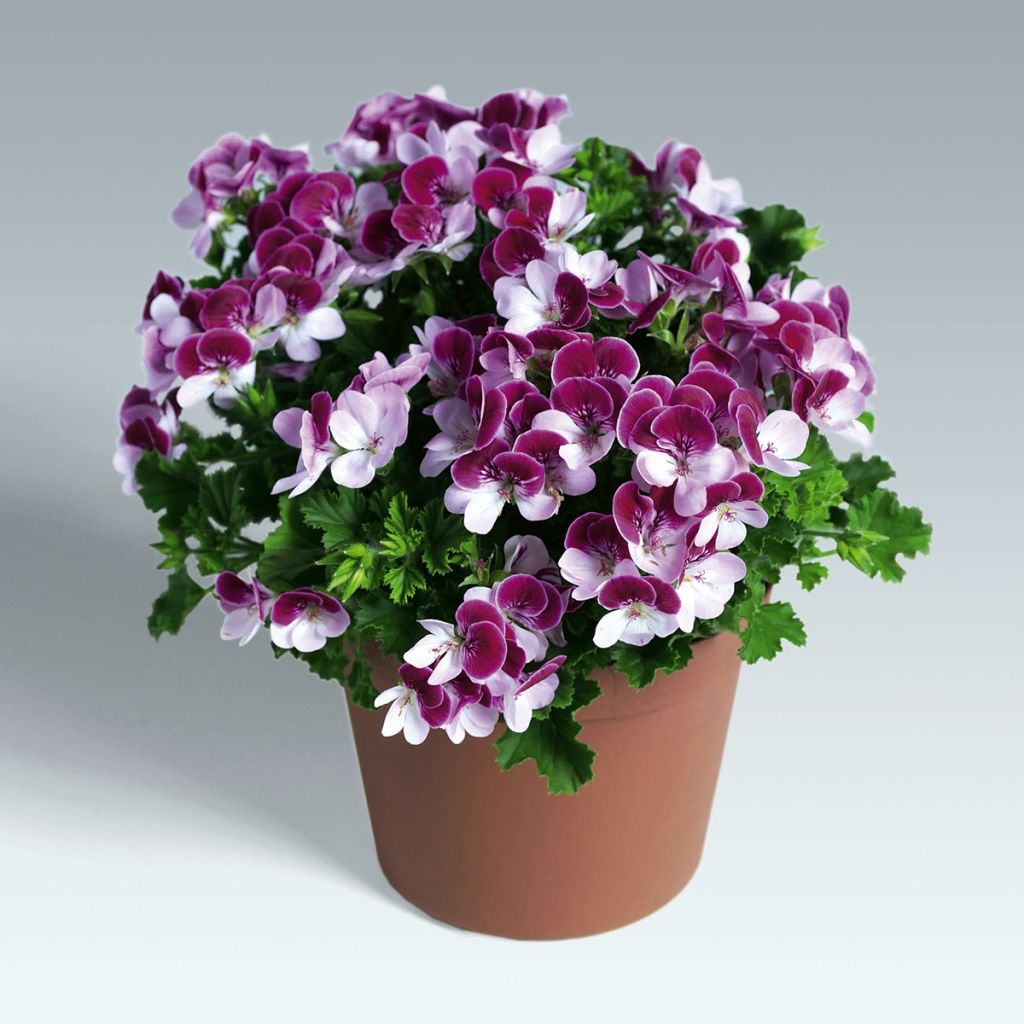

Pelargonium crispum Angel Eyes Bicolor Purple White
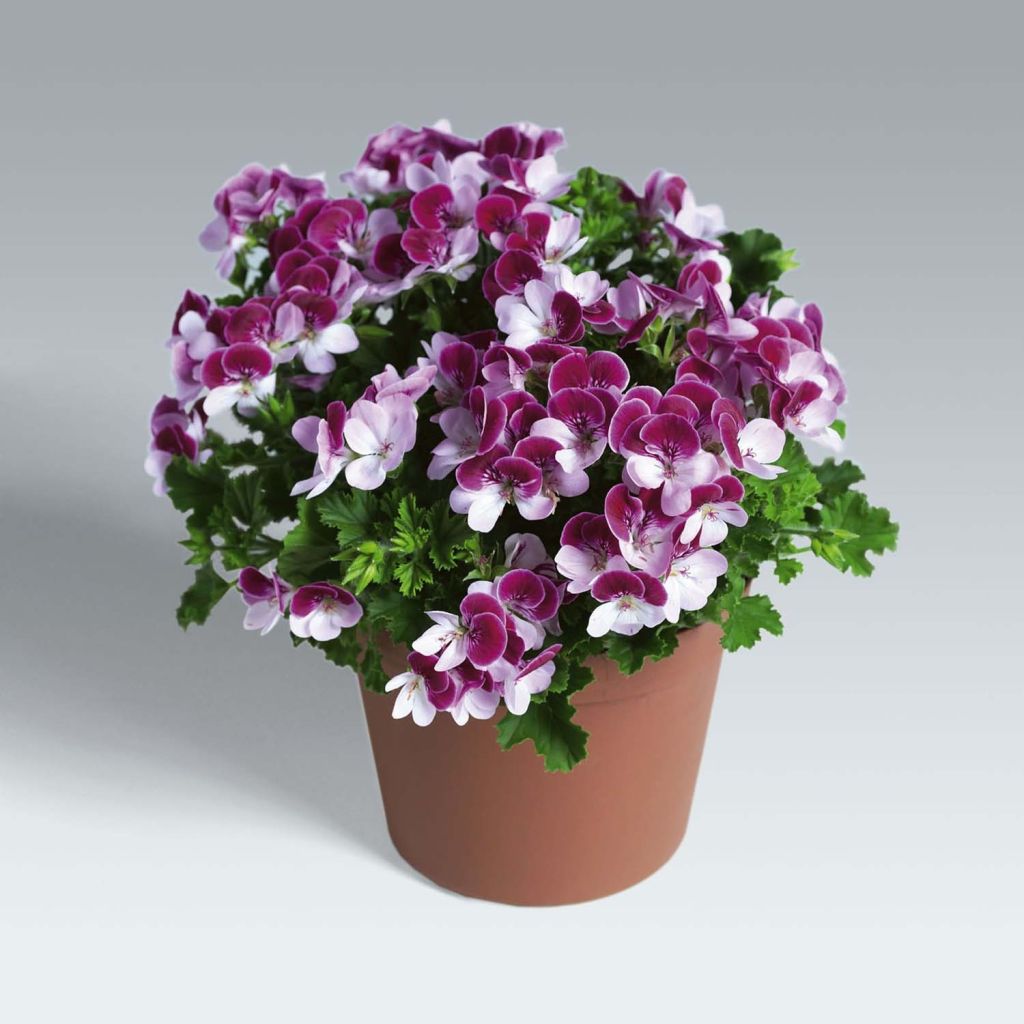

Pelargonium crispum Angel Eyes Bicolor Purple White
Pelargonium crispum Angel Eyes Bicolor Purple White
Pelargonium x crispum Angel Eyes® Bicolor Purple White
Geranium, Storksbill
Special offer!
Receive a €20 voucher for any order over €90 (excluding delivery costs, credit notes, and plastic-free options)!
1- Add your favorite plants to your cart.
2- Once you have reached €90, confirm your order (you can even choose the delivery date!).
3- As soon as your order is shipped, you will receive an email containing your voucher code, valid for 3 months (90 days).
Your voucher is unique and can only be used once, for any order with a minimum value of €20, excluding delivery costs.
Can be combined with other current offers, non-divisible and non-refundable.
Home or relay delivery (depending on size and destination)
Schedule delivery date,
and select date in basket
This plant carries a 6 months recovery warranty
More information
We guarantee the quality of our plants for a full growing cycle, and will replace at our expense any plant that fails to recover under normal climatic and planting conditions.
Would this plant suit my garden?
Set up your Plantfit profile →
Description
The Pelargonium 'Angel Eyes® Bicolor Purple White’ is part of a new generation of geraniums that combine aromatic foliage repellent to mosquitoes with abundant and long-lasting unusually coloured flowers. Its compact and bushy habit allows it to fill summer pots generously. Its countless small white and carmine purple bicolored flowers, as pretty as miniature pansies, follow one another continuously for months, set off by dense, bright green foliage.
Belonging to the Geraniaceae family, the Pelargonium 'Angel Eyes® Bicolor Purple White' is the result of extensive hybridization. It quickly forms a rounded, branched mound, with a rather erect habit, reaching 50 cm (19.7 in) in height and 40 cm (15.7 in) in diameter in a few weeks. Its stems bear numerous small, rounded, lobed, strongly veined leaves of a beautiful, bright green, with finely toothed margins. When crushed, they release a lemon-scented geranium aroma. From the month of May, small bicoloured flowers of about 2 cm (0.8 in) appear between the leaves. They consist of two upper petals, carmine violet with a slight white edge, and three lower petals in very pale pink to white tones. Delicate and lively, they almost completely cover the plant until autumn. Afterwards, if you want to keep this geranium for the following year, you can protect it from frost by bringing it indoors into a conservatory (it does not tolerate temperatures below 0°C (32°F).
'Angel Eyes® Bicolor Purple White' is a beautifully coloured geranium that stands out on its own in a window box, thanks to the density of its foliage, the abundance of its flowers, and its range of shades. However, it works wonderfully alongside pink or white Petunias and Surfinias, with which it shares some very romantic shades. If you want to accentuate the "butterfly" effect, place it in the company of Lobelias or Nemesias with vaporous blooms.
Note: Please be aware that our young plug plants are professional products intended for experienced gardeners: upon receipt, Transplant and store them under cover (conservatory, greenhouse, cold frame...) at a temperature above 14°C (57.2°F) for a few weeks before being planted outdoors once the risk of frost has passed.
Report an error about the product description
Flowering
Foliage
Plant habit
Botanical data
Pelargonium
x crispum
Angel Eyes® Bicolor Purple White
Geraniaceae
Geranium, Storksbill
Cultivar or hybrid
Other Pelargonium - Geranium
View all →Planting and care
Plant your 'Angel Eyes® Bicolor Purple White' geraniums in a sunny or partially shaded location, starting in April or May, depending on the climate of your region. If you choose to plant them in the ground, wait until the last frost has passed, as they cannot tolerate temperatures below 0°C (32°F).
You can also plant them in pots in a sheltered spot, which you can bring outside in May. Geraniums require nutrient-rich soil. In pots, regular watering is necessary in summer. Apply geranium fertilizer regularly. You can overwinter your geraniums by bringing them indoors into a conservatory or cold greenhouse.
Planting period
Intended location
Care
This item has not been reviewed yet - be the first to leave a review about it.
Similar products
Haven't found what you were looking for?
Hardiness is the lowest winter temperature a plant can endure without suffering serious damage or even dying. However, hardiness is affected by location (a sheltered area, such as a patio), protection (winter cover) and soil type (hardiness is improved by well-drained soil).

Photo Sharing Terms & Conditions
In order to encourage gardeners to interact and share their experiences, Promesse de fleurs offers various media enabling content to be uploaded onto its Site - in particular via the ‘Photo sharing’ module.
The User agrees to refrain from:
- Posting any content that is illegal, prejudicial, insulting, racist, inciteful to hatred, revisionist, contrary to public decency, that infringes on privacy or on the privacy rights of third parties, in particular the publicity rights of persons and goods, intellectual property rights, or the right to privacy.
- Submitting content on behalf of a third party;
- Impersonate the identity of a third party and/or publish any personal information about a third party;
In general, the User undertakes to refrain from any unethical behaviour.
All Content (in particular text, comments, files, images, photos, videos, creative works, etc.), which may be subject to property or intellectual property rights, image or other private rights, shall remain the property of the User, subject to the limited rights granted by the terms of the licence granted by Promesse de fleurs as stated below. Users are at liberty to publish or not to publish such Content on the Site, notably via the ‘Photo Sharing’ facility, and accept that this Content shall be made public and freely accessible, notably on the Internet.
Users further acknowledge, undertake to have ,and guarantee that they hold all necessary rights and permissions to publish such material on the Site, in particular with regard to the legislation in force pertaining to any privacy, property, intellectual property, image, or contractual rights, or rights of any other nature. By publishing such Content on the Site, Users acknowledge accepting full liability as publishers of the Content within the meaning of the law, and grant Promesse de fleurs, free of charge, an inclusive, worldwide licence for the said Content for the entire duration of its publication, including all reproduction, representation, up/downloading, displaying, performing, transmission, and storage rights.
Users also grant permission for their name to be linked to the Content and accept that this link may not always be made available.
By engaging in posting material, Users consent to their Content becoming automatically accessible on the Internet, in particular on other sites and/or blogs and/or web pages of the Promesse de fleurs site, including in particular social pages and the Promesse de fleurs catalogue.
Users may secure the removal of entrusted content free of charge by issuing a simple request via our contact form.
The flowering period indicated on our website applies to countries and regions located in USDA zone 8 (France, the United Kingdom, Ireland, the Netherlands, etc.)
It will vary according to where you live:
- In zones 9 to 10 (Italy, Spain, Greece, etc.), flowering will occur about 2 to 4 weeks earlier.
- In zones 6 to 7 (Germany, Poland, Slovenia, and lower mountainous regions), flowering will be delayed by 2 to 3 weeks.
- In zone 5 (Central Europe, Scandinavia), blooming will be delayed by 3 to 5 weeks.
In temperate climates, pruning of spring-flowering shrubs (forsythia, spireas, etc.) should be done just after flowering.
Pruning of summer-flowering shrubs (Indian Lilac, Perovskia, etc.) can be done in winter or spring.
In cold regions as well as with frost-sensitive plants, avoid pruning too early when severe frosts may still occur.
The planting period indicated on our website applies to countries and regions located in USDA zone 8 (France, United Kingdom, Ireland, Netherlands).
It will vary according to where you live:
- In Mediterranean zones (Marseille, Madrid, Milan, etc.), autumn and winter are the best planting periods.
- In continental zones (Strasbourg, Munich, Vienna, etc.), delay planting by 2 to 3 weeks in spring and bring it forward by 2 to 4 weeks in autumn.
- In mountainous regions (the Alps, Pyrenees, Carpathians, etc.), it is best to plant in late spring (May-June) or late summer (August-September).
The harvesting period indicated on our website applies to countries and regions in USDA zone 8 (France, England, Ireland, the Netherlands).
In colder areas (Scandinavia, Poland, Austria...) fruit and vegetable harvests are likely to be delayed by 3-4 weeks.
In warmer areas (Italy, Spain, Greece, etc.), harvesting will probably take place earlier, depending on weather conditions.
The sowing periods indicated on our website apply to countries and regions within USDA Zone 8 (France, UK, Ireland, Netherlands).
In colder areas (Scandinavia, Poland, Austria...), delay any outdoor sowing by 3-4 weeks, or sow under glass.
In warmer climes (Italy, Spain, Greece, etc.), bring outdoor sowing forward by a few weeks.






























